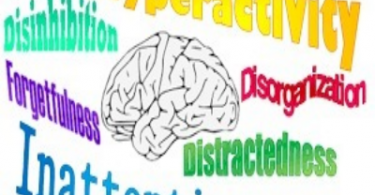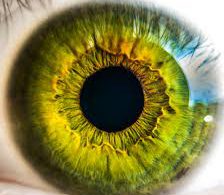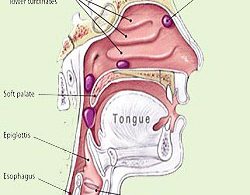“Special Needs” is a large umbrella term underneath which a staggering array of diagnoses can be wedged. Children with special needs may have mild learning disabilities or profound cognitive impairment; food allergies or terminal illness; developmental delays that catch up quickly or remain entrenched; occasional panic attacks or serious psychiatric problems.
Children with “Special needs” are commonly defined by what a child can’t do. E.g. by milestones unmet, food restrictions, activities avoided, experiences denied. These minuses hit families hard, and may make “special needs” seem like a tragic title. Some parents always mourn their child’s lost potential, and many conditions become more troubling with time. Other families may find that their child’s challenges make triumphs sweeter, and that weaknesses are often accompanied by amazing strengths.
In my practice I see following cases as children with special needs:
- ADHD
- Autism
- Cancer
- Cerebral Palsy
- Chronic conditions like asthma and diabetes insipidus
- Congenital Heart Diseases
- Cystic fibrosis
- Down syndrome
- Dwarfism
- Dysfunction of Sensory Integration
- Dyslexia
- Foetal Alcohol Spectrum Disorder
- Muscular Dystrophy
- Prader Willie Syndrome
- Severe food allergies
- Tourette Syndrome
Case 1
I had a very rare opportunity to treat a child with Prader Wille Syndrome. She was a young girl of 14 years. Here is the history in short. During pregnancy, the child’s mother had lots of emotional conflicts with her in-laws. The pregnancy was unplanned. Foetal movements were reduced during the pregnancy. The baby was born with breech presentation, and immediately after the birth, she had severe breathing problems. Later on, there was a delayed development of practically all the milestones. As an infant, she used to sleep for very long hours as a result of which, the nutrition suffered. When the paediatrician was consulted, he observed the clinical findings like strabismus, a small nasal bridge, thin upper lip, poor physical co-ordination, but nothing concrete was diagnosed. Then, at the age of 4 years, the parents observed that the child ate a lot compared to her age and as a result she has added many extra kilos to her weight. This was the time when this syndrome was diagnosed. Since no specific treatment was available, the child was given allopathic drugs off and on for the recurrent episodes of infection of sinuses and skin.
At the age of 11 years; diabetes was diagnosed. That was the time when her father got alarmed and did not want to put the child on oral hypoglycaemic medications and wanted to help the child to shed some kilos but her voracious appetite came in the way.
At the age of 14 years, the child was referred to me for homeopathic treatment.
Further, from the parents, the following history was obtained:
The patient’s father and mother had a conflict from the day one of marriage. The mother was a lawyer and the father was a professor of mathematics. They belonged to the same community; however their outlook towards life was poles apart, hence they had quarrels daily, even during her pregnancy. When the child was 5 years old they got divorced. Later, it was discovered that the mother had never wanted to marry him as she used to love someone else. After the mother left the house after divorce, the behaviour of the girl changed drastically, her upbringing was done by the paternal grandparents but they pampered her too much, as a result of which, she became a spoilt child. She had a lot of anger against her father and even though she loved him very much. In the next few years, her behaviour became worse from bad. She needed food every few hours and ate food without chewing and masticating well, as a result she had frequent episodes of gastric upset; secondly she was very dirty in her hygienic habits; she used to bite nails, fingers, pick them constantly, she was very restless and constantly needed some activity. On several occasions, she ran away from the house and came home late in the evening, she did not like to go to the special school, there she quarrelled with the other kids, and she talked very rudely and in an insulting way. Many times, she fooled her father and her maid servant. She loved to watch television when at home and did not help in household chores, she was lazy in the sense that she just wanted to eat a lot and sleep or see TV at home. When angry she used to become very violent and starts attacking her grandparents and the maid servant. She was very friendly otherwise to all her friends and relatives but she would easily fool them and manipulate them. She had a very poor self confidence and hence couldn’t decide a thing e.g. if she had to buy shoes she would visit at least 10 shops and try 20-30 pairs before deciding what shoes to buy and then finally she would say, ‘I can’t decide’. Here are some of the mental symptoms.
MIND – Abrupt
MIND – Abusive
MIND – Abusive – insulting
MIND – Activity – desires activity
MIND – Amusement – desire for
MIND – Anger – throwing things around
MIND – Awkward – drops things
MIND – Biting – nails
MIND – Breaking things
MIND – Bulimia
MIND – Colors – red – desire for
MIND – Concentration – difficult
MIND – Cunning
MIND – Deceitful
MIND – Destructiveness
MIND – Dirty
MIND – Extroverted Personality
MIND – Fear – water, of
MIND – Gestures, makes – fingers – picking at fingers
MIND – Hurry
MIND – Impulse; morbid
MIND – Impulsive
MIND – Irresolution
MIND – Late – too late; always
MIND – Laughing – immoderately
MIND – Laughing – involuntarily
MIND – Mood – changeable
MIND – Obstinate
MIND – Restlessness
COUGH – Excitement
SLEEP – Yawning – spasmodic
PERSPIRATION – Excitement; after
SKIN – Moles
GENERALS – Food and Drinks – lime, slate pencils, earth, chalk, clay – desire
On examination, I discovered that she was obese, her muscles were hypotonic, and she had small hands and feet with tapering fingers, soft skin, which is easily bruised. According to her father, her IQ was 40.
I started with Tarentula but honestly, I was also thinking of Lachesis and Medorrhinum, however I started with Tarentula 30C and later went slowly over a period of three years up to 50M potency. Several acute remedies like Mercurius solubilis, Kalium bichromicum, Magnesium phosphoricum were given for her acute problems of sinusitis, colitis etc. After three years, there were drastic changes in her obesity, her blood sugar levels and her behaviour. Later, the father decided to migrate to Australia and hence I referred her case to another homeopath there.
Case 2
This is the case of a known case of Tourette syndrome with ADHD and behavioural problems in a young man of 26 years, on heavy medications-Haloperidol (Haldol), Methylphenidate (Ritalin) and Clonidine (Catapres).
His history was as follows:
The patient used to have severe tics which came in bouts and got worse with any and every
excitement. The tics would usually start from the face and then extended to eyes, neck and upper limbs; being more restricted to the right half of the body. There was spontaneous utterance of bad words, mostly vulgar, regularly repeated the words of others and himself. The tics were somewhat lesser during sleep. There was no family history of a similar disorder. He also had severe learning disorder and could not focus on anything. The allopathic drugs that he was taking produced very severe constipation. He was very sexual at an early age of 11 years; he had started seeing pornographic stuff and masturbated heavily. He had a girl friend and he regularly insisted her to have intercourse with him and if she did not permit, he became very violent with her. He used to ask his girlfriend to masturbate
for him 2-3 times a day. He was very crazy about music, beauty, sex, porn, etc. He was very possessive about his girlfriend; once his friend had commented on her and he smashed the friend’s face very badly.
His father worked in a gulf country and visited Mumbai regularly. The patient stayed with his mother and grandmother. His parents used to have frequent quarrels since the beginning of their marriage. Inspite of being together, their relationship was as if they were divorced, there was total unloved feeling in the mother and at the same time she had too much grief for her son and as a result she was quite depressed.
Their son had very poor bonding with both the parents and he was very indifferent to the welfare of the parents. One main reason for this was also that as a young adolescent he was physically abused by his father.
He regularly suffered from sadness without any cause and then used to weep in the arms of his girlfriend. He also loves fizzy drinks and goes crazy with loud pop music.
I selected following symptoms for him:
MIND – Abusive
MIND – Ailments from – dysfunctional parents
MIND – Ailments from – punishment
MIND – Anger – violent
MIND – Concentration – difficult
MIND – Gestures, makes – tics; nervous
EYE – Twitching
MIND – Lascivious
MIND – Sensitive – music, to
MIND – Sensitive – noise, to – music amel.
MIND – Shameless – exposing – person; the
FACE – Twitching
RECTUM – Constipation – difficult stool
MALE GENITALIA/SEX – Masturbation; disposition to
MALE GENITALIA/SEX – Sexual desire – increased
GENERALS – Side – right
Based on above symptoms Tarentula 30C was selected and his allopathic drugs were tapered slowly over a period of one year. The potency was also increased. The aim of homeopathic treatment was not to cure the syndrome but to reduce the symptoms, hence at the end of four years his tics became less, and his aggression reduced. He started his own business of mobile phones and now seriously thought of marrying his old girlfriend.
Although every special-needs child is different and every family is unique, there are some common concerns that link parents of challenged kids, including getting appropriate care and accommodations; promoting acceptance in the extended family, school and community; planning for an uncertain future; and adjusting routines and expectations. Homeopathy goes a long way to help such desperate patients, also we should inform parents that the treatment will go for longer duration and they should thus be patient.





